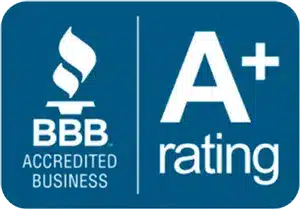Hepatitis C is a life-threatening virus. This disease mainly targets one organ, i.e., the liver, and if it’s left undetected, it can progress to more dangerous conditions like liver damage, cirrhosis, or even liver cancer. But the real danger of Hepatitis C lies in its early stages, where it typically shows no symptoms. This reason is why early detection through Hepatitis C testing is vital. At Equality Health, we provide Hepatitis C screening services with accurate results. So, if you want to prioritize your health and take a step towards a healthy future, don’t hesitate to contact us today!

Understanding Hepatitis C
Hepatitis C is not just a common infection, but it is a life-threatening disease that can progress to extreme severity. So, let’s understand some of the common transmission modes:
- Sharing blood: Hepatitis C has a high chance of transmitting to another person in countries where they don’t test blood before transfusion.
- Sharing drug-used equipment: Injecting drugs using syringes, needles, to tourniquets could have blood on it that can transmit Hepatitis C.
- Sharing tattoo or piercing tools: If you share tattoo or piercing tools without sterilizing them, you have a high chance of being infected by Hepatitis C.
- Not Using Sterilized Medical Equipment: Hepatitis C can also be transmitted in a medical setting if the healthcare professional does not sterilize the medical equipment before use.
- Mother to newborn child: Hepatitis C can infect the newborn child if the mother is suffering from Hepatitis C while giving birth.
Hepatitis C can be a silent killer because it does not show any major symptoms in its early stages. So, people can unknowingly be suffering from Hepatitis C for months without even knowing. So, to prevent that from happening, Hepatitis C testing from time to time is extremely important.
Methods for Hepatitis C Testing In Oklahoma
Getting tested is the best way to protect yourself from Hepatitis C and keep yourself healthy. There are two main methods of testing for Hepatitis C in Oklahoma. They are:
Antibody Tests
Antibody tests help to detect antibodies in your body left behind by the Hepatitis C virus. When the Hepatitis C virus enters the body, our immune system responds by creating new antibodies to fight it. It detects these antibodies in a blood sample, which further indicates an exposure to the virus at some point. However, a positive antibody test doesn’t mean the infection is currently active in your body. Our antibody tests include:
- Enzyme Immunoassay (EIA): It helps to find out if the blood samples have antibodies in them.
- OraQuick HCV: It is a rapid test that helps to find antibodies in your blood by pricking your finger for a blood sample.
Nucleic Acid Tests
Nucleic Acid tests go straight to the source by detecting the genetic material (RNA) of the Hepatitis C virus in your blood. These tests are very sensitive and can find out if the virus is actively present in your body. They are often used to confirm a positive antibody test and understand the seriousness of the infection. It’s important to understand that while antibody tests are used as initial screening tests, nucleic acid tests help to confirm a diagnosis. Our nucleic acid tests include:
- Polymerase Chain Reaction (PCR): To find the viral RNA and the viral load.
- Transcription-Mediated Amplification (TMA): To find the viral RNA and its load.
Call us today at Equality Health to schedule a test!
Hepatitis C Testing Process
Our Hepatitis C testing process at Equality Health consists of the following guide:
- Pre-test preparation: You must start by getting an appointment for Hepatitis C testing. Then, you will get invited to a pre-counseling session where your doctor will inform you about Hepatitis C and the testing process.
- Informed consent: Your doctor will ask for your consent to move forward, which is just a way of making sure you’re okay with having the test.
- Collecting a sample: When you’re comfortable and ready, your blood sample will be collected. It’s a quick process where the healthcare professional will take a blood sample using a needle in your arm or a finger stick.
- Lab analysis: Your blood sample becomes a key player in the laboratory. Here, it goes through two important tests: the antibody test and, if positive, the nucleic acid test. These tests help to search for any traces of the Hepatitis C virus.
- Waiting for results: Now starts the waiting game. Rapid antibody tests might provide results within a few minutes, while standard tests typically take two to three days. It’s normal if you feel a bit anxious during this time.
- Post-test guidance: Once your results come back, it’s time for post-test counseling. Regardless of the outcome, this session is very important. Your healthcare provider will break down the results, and you can discuss potential Hep C treatment options in Oklahoma if necessary.
Who Should Get Tested for Hepatitis C?
Hepatitis C is a concern for all of us, but some individuals are at a higher risk of getting and spreading the virus, which makes it important for them to get tested.
- Injection drug users: If you have ever injected drugs in your life, you have a higher chance of contracting Hepatitis C.
- Blood Transfusions: If you live in a country where they don’t test blood before blood transfusion, and you have received blood, you may be at a huge risk of contracting Hepatitis C.
- Born to mothers infected with Hepatitis C: Babies born to mothers infected with Hepatitis C are at risk of transmission during childbirth.
- Healthcare workers: If you work in healthcare, in settings where you are exposed to accidental needlesticks or potentially contaminated blood, you also may be at risk.
- HIV infection: HIV and Hepatitis C have similar transmission routes. If you’re living with HIV, the risk of co-infection is higher. You can also get HIV tests and HIV treatment at Equality Health.
- Risky sexual behavior: While the risk is lower than with other modes of transmission, unprotected sex can still pose a risk, especially in cases of multiple sexual partners.
So get tested today to keep yourself safe from the Hepatitis C virus! Call Equality Health for any inquiries about getting tested.
Interpreting HIV Test Results
After getting a Hepatitis C test, you must also know how to interpret your test results correctly. If you are unsure about the interpreting method, we have your back!
A positive result
When the antibody test comes back positive, it’s like a signal that your body has crossed paths with the Hepatitis C virus at some point. But it doesn’t necessarily mean you’ve got an ongoing infection. For the real confirmation, you’d need a nucleic acid test (NAT). Now, if NAT also comes back positive, that’s when you should contact a healthcare pro because it means there’s an active infection, and you need to start your treatment process.
A Negative Result
When that antibody test comes back negative, it means that there aren’t any Hepatitis C antibodies in your bloodstream, which means no past exposure. And when the NAT result is negative, too, it’s even better news because it signals zero active infection. But you must remember you’re not immune to a Hepatitis C-free future.
An Indeterminate Result
Sometimes, the test results don’t give a clear thumbs-up or thumbs-down. It’s like they’re stuck in the middle, not fully positive or negative. Some examples of indeterminate results are:
- False-negative: If the result comes back as a false-negative, you are in the early stages of the infection, but your body has not produced enough antibodies.
- True-positive: True-positive means that you have tested positive for Hepatitis C.
- True-negative: True-negative means that you have tested negative for Hepatitis C.
When this happens, the smart move is to go for additional testing, maybe with a different approach.
Hepatitis C Support and Resources in Oklahoma
Dealing with Hepatitis C can be overwhelming, especially if it’s new to you. We get that, and at Equality Health, we’re here to support you every step of the way. That’s why, as part of our Hepatitis C testing programs, we also offer referrals to counseling services. Our goal is to provide you with a safe and understanding environment where you can openly discuss your concerns about the virus. We are here to answer all your questions related to Hepatitis C. We also help to connect you with support groups for the extra layer of assistance. So don’t hesitate to reach out to us today!
Contact Equality Health For Hepatitis C Testing In Oklahoma
Your journey to overcome Hepatitis C is challenging but is not impossible. At Equality Health, we’re here to support you every step of the way for all STD testing in Oklahoma.
So don’t hesitate to reach out to us today! So call us at 405-761-2762 to get started! We offer our Hep C testing services in Edmond, Moore, Norman, and Oklahoma City.
Frequently Asked Questions (FAQs)
No, doctors don’t always routinely test for Hepatitis C while getting a blood test. Many people have the misconception that when you take a blood test, your doctor will also check for Hepatitis C. But that is not always the case. You must request Hepatitis C testing if you have any signs of symptoms. Finally, you will know if you have Hepatitis C or have been exposed to Hepatitis C at some point in your life.
If you are above 18 years old, it is a good time to get tested for Hepatitis C to stay on the safe side. You are also highly recommended to test for Hepatitis C during pregnancy or if you have an HIV infection, if you have used drugs before or you have been exposed to non-sterilized equipment, and more. We know that acute Hepatitis C usually shows no symptoms in its early stages, so you may not know you are infected with Hepatitis C without getting tested for it.
No, the only way to test for Hepatitis C is by taking a blood sample. The common way to test the Hepatitis C virus is by taking a blood sample for an antibody test. An antibody test helps to find out if the virus has ever infected someone. Similarly, a nucleic acid test helps to confirm if you have an active Hepatitis C infection or not. While urine tests are commonly used to diagnose different diseases like chlamydia, trichomoniasis, and more, they are not used for Hepatitis C testing.
If your result is tested positive for Hepatitis C, it means that you were exposed to the Hepatitis C virus at some point in your life. Once people get infected with the virus, they will always have antibodies present in their bloodstream. So, to determine if the Hepatitis C virus currently infects you or not, you must undergo a nucleic acid test.
No. The regular blood tests do not show if you have Hepatitis C or not. A normal blood test cannot determine your exposure to Hepatitis C. While many people have the misconception of thinking Hepatitis C can be diagnosed from a routine blood test, this is untrue. You must undergo an antibody test or a nucleic acid test to find out if you were ever exposed to Hepatitis C at some point in your life or are currently infected.
You can detect Hepatitis C from a blood test in Oklahoma from a few days to a few weeks. It can take 8-12 weeks for the antibodies to get detected after exposure. In some cases, it can even take up to 6 months for the antibodies to show up in the bloodstream. At the same time, a nucleic acid test helps in Hepatitis C detection within a few weeks after the exposure.
As Hepatitis C is generally asymptomatic, it can take years or even decades for you to feel any symptoms of the virus. And when you do show symptoms of the virus, the virus will have had enough time to damage your body. That’s why early detection of the Hepatitis C virus is extremely important to diagnose the virus in its early stages. Treatments for Hepatitis C can cure the virus before it starts to make you sick, and you can easily get the virus under control with early detection.
Yes, you can cure Hepatitis C with the right treatment as well as with early detection. With many advances in antiviral medications for Hepatitis C, many people have experienced a higher cure rate for the virus, which is more than 95%. However, the treatment period and specific medications that are required may differ from one person to another depending on the genotype of the virus. Therefore, early detection is the best prevention method.
If you want to get tested for Hepatitis C in Oklahoma, Equality Health is your best choice. We provide a comprehensive Hepatitis C testing service followed by counseling services and treatment procedures. Our healthcare professionals are highly skilled and have years of experience in their hands. We provide antibody tests and nucleic acid tests to detect if you have ever come in contact with the Hepatitis C virus or if you are currently infected.


